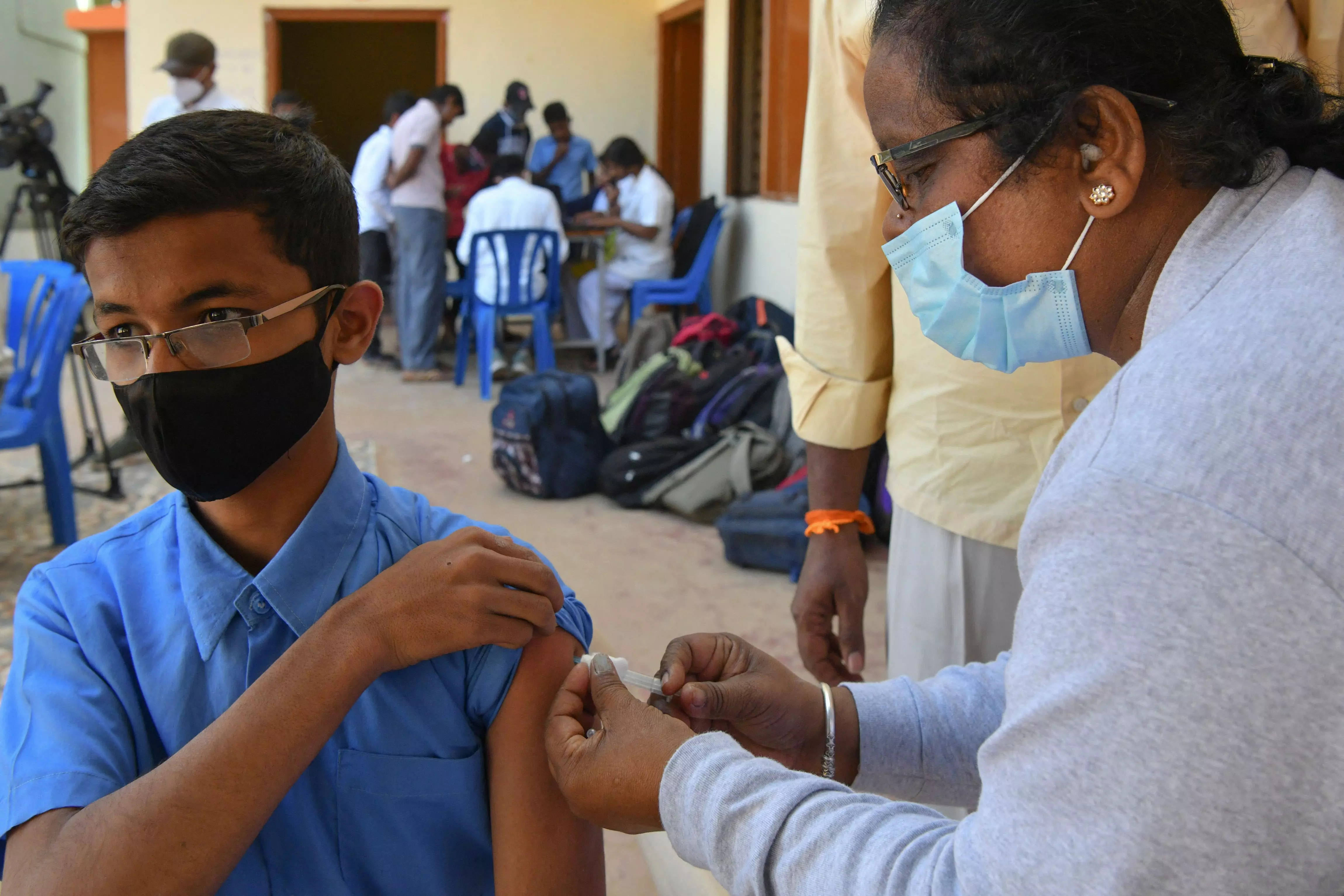Covaxin infected 50% teens: Study

HYDERABAD: Nearly half of adolescents, who received Covaxin, a Covid-19 vaccine manufactured by Bharat Biotech, reported infections, predominantly viral upper respiratory tract infections (URTIs), within one year after the vaccination, says a study.
According to an 11-member team of researchers led by Upinder Kaur of the Banaras Hindu University (BHU), the three most common disorders among adolescents after receiving are skin and subcutaneous disorders, nervous system disorders and general disorders.
Bharat Biotech’s Covaxin (BBV152) was the second most distributed vaccine in India after Serum Institute’s Covishield (AZD1222). The study on long-term safety of Covaxin after one year was conducted on data received from 577 adolescents and 225 adults.
At least one in 10 adolescents who received Covaxin complained of alopecia (baldness) and a similar percentage had reported general disorders such as weakness. While most disorders had resolved by the final follow-up after six months, skin conditions persisted in the majority of cases even after eight and half months.
Nervous system disorders, including headaches and attention difficulty, were reported by almost five per cent of both adolescents and adults, with symptoms persisting for around nine months.
Eye disorders, such as vision problems, were reported among 3.6 per cent of adolescents, while five per cent of adolescent females reported menstrual abnormalities. Hypothyroidism was reported by approximately 0.6 per cent of both adolescents and adults.
The other common disorder among adults, according to the study, was gastrointestinal disturbances.
The incidence of adverse events was common among adolescents with a history of allergy, pre-vaccination history of Covid-19 and post vaccination typhoid.
Of the total number of people who participated in the study, four deaths were reported among adults. These four adults (three women and one man) had a history of diabetes and hypertension. They were contracted with Covid-19 before the vaccination. The causes of death included stroke, post-Covid-19 fungal infection affecting head (rhino-cerebral mucormycosis), and unidentified disease following multiple episodes of unconsciousness.
The study also found that vaccinated adolescents who developed typhoid after receiving Covaxin might also be at higher risk of adverse events of special interest. Similarly, adolescent females and those with comorbidities are at higher risk of persistent adverse events.
The study also found that adults with comorbidities, especially hypertension, are at higher risk of adverse events after receiving Covaxin.
The researchers also suggested extended surveillance of people who received Covid vaccines to understand the course and outcomes of late onset of adverse events.
As the study was conducted primarily on participants belonging to the northern belt of India, the researchers called for exploring ethnicity related differences in vaccine tolerability.
Reacting to the study, Bharat Biotech said, “Several studies have been executed on the safety of Covaxin, and published in peer reviewed journals, demonstrating an excellent safety track record.”
For such a study in safety to be effective, informative and to avoid investigator bias, Bharat Biotech said data on AESI safety profile of the subjects prior to participation in the study is required.
Similarly, the company said comparison of safety profiles of non-vaccinated subjects during the course of the study and comparison of safety profiles of subjects who received other vaccines during the course of the study are also required..
“All study participants should be followed during the course of the study, instead of only a subset,” it added.

